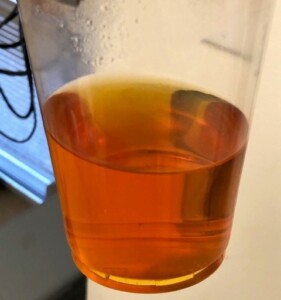Is health anxiety more common in autistic people than in the general population?
Health anxiety is when one worries way too much that they have or will acquire a deadly medical condition – especially if they’re at low risk for it.
The range of illness anxiety disorder, also known as hypochondriasis, can be quite broad.
In fact, it can even be thought of as occurring on a spectrum.
For example, there was the case of a man, a physician, who one day became overwhelmed with the idea that the unexplained pain in a knee was a metastasis from breast cancer – even though he had no symptom of breast cancer, and even though only 2,800 men a year in the U.S. are diagnosed with breast cancer.
This man’s imagination was a runaway freight train.
However, a bout of health anxiety can be less severe; for example, a smoker develops burning in his throat and starts panicking that it’s throat cancer – even though his doctor, after conducting some tests, has reassured him that it’s acid reflux.
Yet the patient still fears he has laryngeal cancer and spends a lot of time reading about its symptoms and feeling his throat.
His worry is excessive, but at least there’s a realism to it: Very few laryngeal cancer patients have never smoked.
Autism and Health Anxiety
I have a clinical diagnosis of Autism Spectrum Disorder.
One of autism’s traits is a propensity to overthink. It is this overthinking that can lead to health anxiety.
But plenty of people who have health anxiety, even to a crippling degree, are neurotypical.
With the advent of the Internet, cases of severe health anxiety have skyrocketed.
When we combine easy access to “Dr. Google” and an autistic person’s propensity for overthinking – we have a big potential problem: health anxiety.
It’s important to note that illness anxiety disorder in an autistic individual can also be fueled by chronic unemployment – which translates to lack of covered health insurance.
I can’t say that I’d never have health anxiety if I were neurotypical.
After all, the volume of posts in medical forums, relating to health anxiety, can sink the Titanic.
All of those posters can’t be autistic, simply because the vast majority of people are not autistic.
But one thing’s for sure: And that is autism can be a two-edged sword when it comes to health anxiety.
The overthinking can give rise to hypochondria.
• Every headache might be a brain tumor.
• A stomach ache could be colon cancer.
• A slight burning with urination must be prostate cancer.
• A stumble while jogging surely means the onset of multiple sclerosis.
• Peeing a lot one day surely means the beginning of diabetes.
• A little heart flutter means a heart attack is coming.
However, along with the Autistic’s overthinking is also the gift of hyperfocus, information seeking skills and retention of new knowledge.
This means that in 30 minutes, an Autistic may be able to plow though twice as much medical information online that an NT would need 90 minutes to find. And they’d remember it better, too.
The Autistic may also be able to visualize much better and more easily detect patterns with their symptoms which can be crucial in subduing health anxiety.
“If something has rarely or ever occurred [as in a physical symptom], autistic people are more likely to feel the need to report that, while a neurotypical person may be less likely to feel a need to mention or explain that incident,” says Dr. Jessica Myszak, licensed psychologist, and director of The Help and Healing Center, whose practice is mostly autism assessment for adults.
This can actually lead to an earlier diagnosis of a serious condition, which would mean a higher chance of a favorable outcome.
There is no study on the prevalence of health anxiety in Autistics vs. NTs – even though there’s a world of information about generalized and social anxiety in autistic people.
When compared to NTs, autistic people are definitely more likely to suffer from GAD (generalized anxiety disorder) and social anxiety.
But when the Autist has health anxiety, it clearly seems to me that they’d be a lot more proficient than most NTs with tracking and documenting all facets of their symptoms, looking for common denominators and trends that could support a benign cause.
One day my urine was a striking deep orange, like a blazing sunset. I thought it was blood.

My urine
A trip to urgent care, where my urine was a pale yellow, revealed a normal sample.
Over the next seven weeks I documented every urine output, peeing into a plastic cup so I could view the color – and I rated the degree of yellow or orange, including “amber.”
- I was not able to detect a pattern.
- Why was it that sometimes my urine was this intense amber, like it had blood mixed in it?
Even when I was deliberately very hydrated, this would happen. It’d leave salmon-orange colored stains on the tissue paper.
I’d leave the tissue paper out to dry, knowing that when blood stains dry, they leave a very obvious dark outline.
It was reassuring to see that the salmon stains never left an outline, but I was still unnerved over why my urine was sometimes a deep orange – beyond what would be the result of dehydration – especially since this would occur despite drinking 10 glasses of water in a day. WTF.
My autistic mind was hell-bent at getting to the bottom of this. I dug deep online, seeking answers.
And crikey! I stumbled upon it as the result of persistent hyperfocus on this situation.
It was a side effect of a supplement that I was taking inconsistently.
The inconsistent taking explained why the amber occurred only sometimes.
When I googled the supplement’s name plus “urine color,” the hits came up, confirming it.
The amber urine disappeared when I stopped taking the supplement altogether, and would return when I resumed taking the supplement. Hot dang!
I credit my autistic persistence and hyperfocus to solving the mystery.
So then, what percentage of Autistics have illness anxiety disorder and what percentage of neurotypicals have it?
Nobody knows. Nobody may never know.
As for what that supplement was, see the article below.
Dr. Jessica Myszak, a psychologist who specializes in autism assessment for both children and adults, is the founder of Autistic Support Network. She sees clients in-person in the Chicago area and over telehealth in 31 states. Learn more about her practice at helpandhealingcenter.com.
 Lorra Garrick has been covering medical and fitness topics for many years, having written thousands of articles for print magazines and websites, including as a ghostwriter. She’s also a former ACE-certified personal trainer. In 2022 she received a diagnosis of Level 1 Autism Spectrum Disorder.
Lorra Garrick has been covering medical and fitness topics for many years, having written thousands of articles for print magazines and websites, including as a ghostwriter. She’s also a former ACE-certified personal trainer. In 2022 she received a diagnosis of Level 1 Autism Spectrum Disorder.
.











































